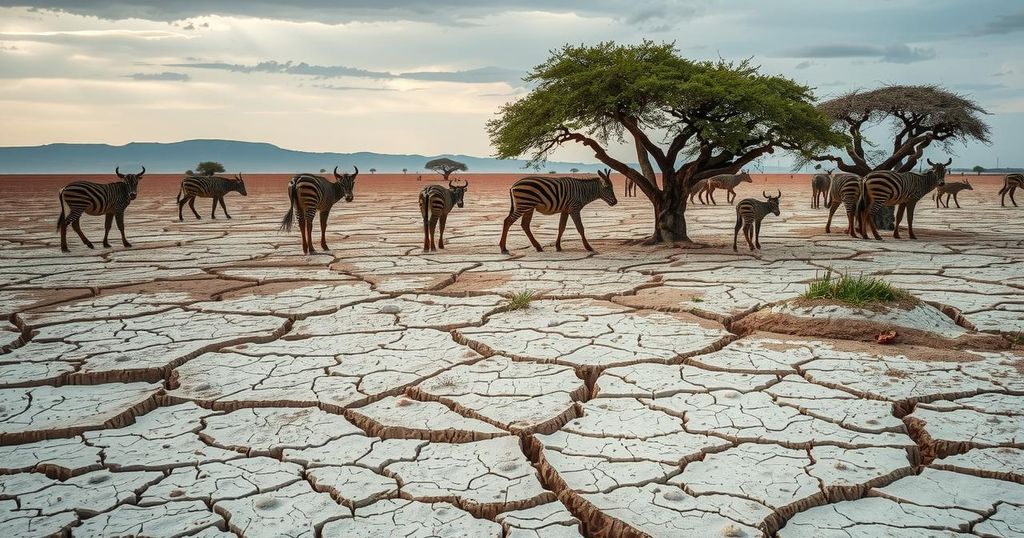Kenya is facing its worst drought in 40 years, affecting millions due to water and food shortages. This crisis has resulted from shifting climate patterns that have intensified drought conditions. At COP29, Kenya sought financial support to develop adaptation strategies, leading to the Baku Climate Unity Pact aimed at assisting vulnerable nations against climate change effects. The challenge remains to convert promises into actionable support.
Kenya is currently experiencing its most severe drought in four decades, impacting millions who face significant challenges due to water and food scarcity. This unprecedented severity of drought, which has shifted from predictable seasonal patterns to increasingly frequent and intense crises, has devastated the agricultural and pastoral livelihoods of communities in arid and semi-arid regions.
The United Nations reports that widespread water shortages have left many Kenyans lacking reliable access to safe water sources. Rivers, lakes, and aquifers are dwindling, compelling women and children in northern Kenya to undertake lengthy journeys for unclean water, greatly increasing their exposure to infections and diseases.
During the recent UN Climate Change Conference (COP29) held in Baku, Azerbaijan, Kenya called for enhanced financial support from developed nations to combat these challenges and to explore adaptation strategies. A significant outcome of the conference was the establishment of the “Baku Climate Unity Pact,” which aims to create new collective financial targets to assist vulnerable countries with climate adaptation, thus strengthening their resilience against climate impacts.
While the agreement reflects a commitment among the international community to support nations like Kenya, the critical issue now lies in actualizing these pledges into effective operations that can help mitigate the adverse effects of prolonged droughts and climate change.
Kenya’s plight symbolizes the broader struggle faced by various countries, particularly the least developed nations that contribute minimal greenhouse gas emissions yet suffer the most from climate change impacts. Reports highlight the urgent need to address the dire situation in Kenya and similar regions, translating international promises into tangible results.
The drought conditions currently facing Kenya are the most severe in over forty years, significantly impacting millions of people reliant on agriculture and livestock. This environmental crisis has intensified due to a shift in climate norms, leading to increasingly unpredictable and harsher weather patterns. As water sources dwindle, communities are left vulnerable and in desperate need of assistance. The recent COP29 conference aimed to address these pressing issues, showcasing the international community’s role in providing both immediate relief and long-term adaptation strategies for affected nations.
In conclusion, Kenya’s ongoing drought crisis serves as a stark reminder of the immediate impacts of climate change on vulnerable populations. With millions affected, the situation demands urgent attention and action from the global community. The outcomes of COP29, particularly the Baku Climate Unity Pact, present a pathway forward, yet realization of these commitments will be essential in alleviating the suffering endured by those in drought-stricken regions, including Kenya.
Original Source: www.aljazeera.com






